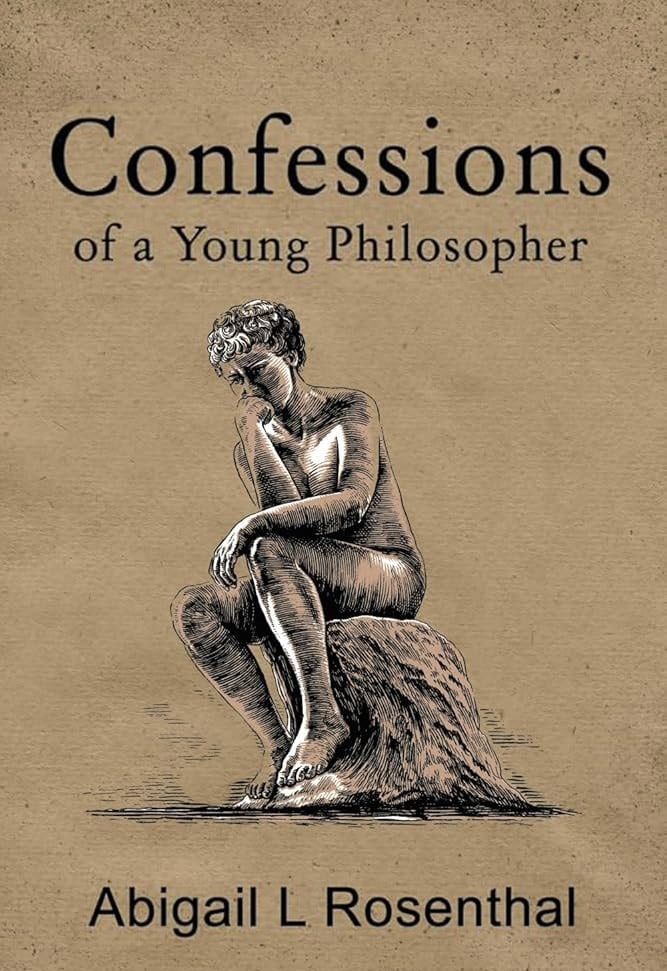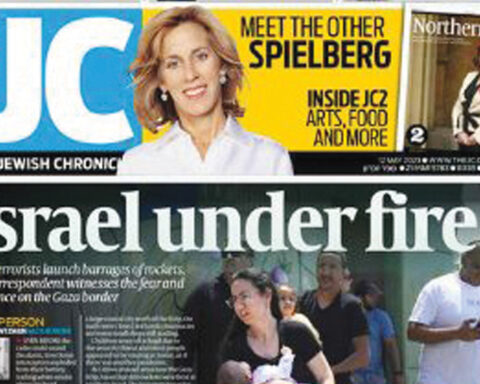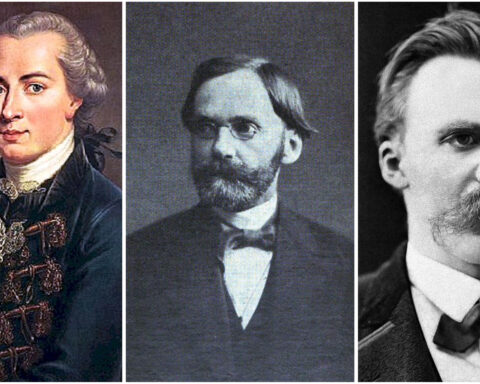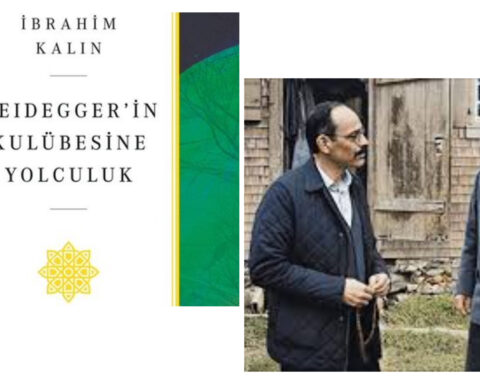Review of Abigail L. Rosenthal’s Confessions of a Young Philosopher (Caladium Publications, 2025)
With apologies to Hamlet, “to be or not to be” is not a question but a rebuke: how could God burden His children with the torment of choice and the consciousness of death? Hamlet should have known better than to try reasoning his way out of dilemmas that surpass the human mind, which is too closely bound to bivalent logic. The moral life cannot be reduced to antinomies, which ignore the context of history, the maelstrom of emotion and confusion that is the lot of man.
And of woman. No need to remind Abigail L. Rosenthal, Professor Emerita of Philosophy at Brooklyn College of the City University of New York. Proud of her ambidextrous brain, she considers the disjunction “to think or not to think” as nonexclusive. To a philosopher, it is not a question but a sentence, a verdict of privilege. It is indeed much more: Thou shalt at once think and suspend thinking, all the while allowing yourself to feel. You must act decisively, with courage, and also suspend judgment; love yourself but even more urgently love others, compassionately yet without sentimentality, justly and fairly. She tried her utmost not to kid herself: “I was obliged to seek the truth of whatever situation I found myself in. Life was not a game.” There is no winning or losing; to live is to witness.
To think, to feel, to be here and now and embrace time along its ever-changing Heraclitean flow, that has always been her mission. “Instinctively, I sought to get my bearings and location in human history itself. It wasn’t a matter of ambition to ‘make history’ or even ‘make a difference’ in history. I just wanted to know how to find me in the bigger story.” Her search could not be merely intuitive: “I wanted to be conscious of the purposes behind my choices, not let them guide me unawares. I wanted also to figure out what gave others their motives to act and feel as they did.”
The result is this remarkable book, an exceptional confession in the tradition of Augustine and Rousseau, penetrating and transforming. She owes much to her beloved parents, having entered the field of philosophy “partly to try to understand” her American-born father, Henry M. Rosenthal. A member of Columbia’s celebrated class of 1925, which included writer and critic Lionel Trilling, art historian Meyer Shapiro, the spy-turned patriot Whittaker Chambers, the eminent writer and publisher Clifton Fadiman, and other cultural giants, Henry never waned in his support of her intellectual endeavors. Nor did her mother, whose intuitive intelligence enhanced by cosmopolitan erudition, her understated, gentle beauty, and nurturing femininity, contributed to turning their mid-town Manhattan apartment into a virtual European salon. It became a haven for pre-war and post-war intellectuals, mostly Jewish, who had escaped the Holocaust. Growing up in a culture of ideas, Abigail, attractive herself, naturally saw herself as a full person, embracing the passionate core of her nature in a self-appointed quest for the Absolute.
That quest never left her, though it would take time to identify the real nature of her motivations. At age 21, these did not seem to her as particularly Jewish. She later realized, however, that “in a certain definite sense, they were.” By definite, she means not abstract: for “the medium of the Jewish search is ordinarily the historical context in which one finds oneself.” That is in fact the profound message of the Bible, whose intricately intertwined stories were memorialized for all who would learn from it. Revived, reinterpreted, and mined for wisdom to this day, those stories speak to the joint journey of God and His children, who willingly took up the challenge of that partnership.
Its protagonists had been under no illusion that it would be smooth sailing, but they trusted Him. Jacob and his Rachel, Joseph and his Egyptian exile, all had chosen “to participate with God in the grounded reality [sic] of their lives. Their covenant went forward on the horizontal plane where we live our stories.” At the beginning of her journey, Abigail too did not know the price of that choice. It would prove high, almost too high. But there was never a doubt that she would pay it.
Her first and most jarring jolt into grounded reality took place in Paris. Where else could she better experience that sense of invasion or danger, even shame and anguish, that Simone de Beauvoir had called “the masculine element”? That it would involve a man whose worldview could not have been more antagonistic to her own was ironic. He came from a family shattered by the Nazi occupation of Greece, and had leapt into communism, thereby substituting “a ready-made ideology for the life story he might have worked his own way through.” He thus opted against truth.
That wasn’t real courage, merely “a simulacrum of real retrospection.” Like other ersatz ways of escaping historical time by promises of something more perfect, it’s all pretend. And “pretend lives are susceptible to manipulation, from within or without.” Yet he exuded a kind of manly ferocity that proved seductive. Had the repulsive nature of his ideas enhanced the allure of his crude physicality to reveal the powerful attraction inherent in all danger and the temptation of self-destruction? Perhaps.
It was also an intellectual and existential challenge. She already knew that she could, wanted, needed to, think and know. Philosophy, for her, “was and is home away from home, common ground for everyone, from antiquity to the present hour, who’s ever searched for wisdom. For me, it really is the conversation of the human race.” But was a conversation possible with someone so utterly different from oneself—let alone love? Did it help that she was a woman and could relate on another plane? It certainly magnified the complexity, the passion, the mystery.
A conversation with the entire human race could not fail to include woman. Without her, God’s Image was not just incomplete, it was inconceivable. Accordingly, philosophy was especially well-suited for a woman, particularly someone like Abigail, who described herself as “a woman of deep intellectual romanticism.” When her dissertation director Stanley Rosen, a disciple of the celebrated German Jewish philosopher Leo Strauss, told her that philosophy is “parricide,” urging her—no doubt in jest—to “kill [her] father and destroy [her] femininity,” she took it all in stride. Had it not been widely believed in America, “on Freudian and other grounds, for at least a hundred years,” that exercising mental power was masculinizing? Far from resenting her professors, Abigail respected their frankness. Her explanation was: “They defended their masculinity as they understood it, just as I hoped to defend my femininity as I understood it.” This took empathy to a whole new level.
Luckily (perhaps…), empathy she had aplenty. She needed it all, too, as she embarked upon her first task: to “trace out the path between the worldview” of her erstwhile lover and herself. The problem encountered by all who follow the Socratic summons to self-examination, however, is that thinking is never as simple as it looks. “While we think, we see ourselves thinking,” she writes in the solipsistic mode familiar to every budding philosopher. Then she adds: “But, very sadly, whether we will or no, we see ourselves through the eyes of others.” And then what happens? How can one ever reach anything resembling objectivity, truth, authenticity?
The dilemma presents a particular urgency for women in a reflexively misogynist culture, where the need for social acceptance comes in direct conflict with the competing desire to be taken seriously as a thinking being. Abigail feared that in her struggle to disprove the social consensus, her vital forces would be slowly and irredeemably vanquished—thereby paradoxically proving the communal narrative right. If so, that was a choice she could not avoid, for she had to find out what it meant to both think and love as a woman, with all that implied, for good and ill.
That the trajectory of her life-story should have begun at the birthplace of modernity itself, where Europe first sought to guillotine its heart by exchanging God for History, seemed providential. Paris was ideally suited for God and her to hold their argument about the best way to seek wisdom as a unique human being, a woman, who necessarily belongs to a particular people, existing under empirical conditions. As a Jew, she was fortunate to belong to the people who came into theological history as the first to have consented to their partnership with God. “Had they not done so we would only have one more mode of worship in retreat from the world—not an experiment that enters the world as it is.”
That world was unspeakably cruel to the gullible. What one needed to learn, however, was that we were all susceptible to evil, ignorance, and hatred. The only antidote was to seek the truth. Despite or rather because of the pain he had inflicted on her and others, her Marxist-atheist (indeed, as she learned later, antisemitic) lover did her a favor. He opened her eyes to her own all-too-human ability for self-deception. She had believed his promise to write to her. When he, predictably, did not, she admits: “Vaguely, I understood that I had been proven a fool in the deepest instincts of my heart.”
This leads her to understand the cosmic implications of The Lie:
Is a lie so important? They got tired of hearing them in Eastern Europe, blared from loudspeakers across public squares, and having to repeat the latest official lies. Communist regimes collapsed because they had rested on force and deception, which are not props enough. The smallest lie is of tremendous consequence.
If only it were possible to always recognize the lie—especially when fear and passion blur the soul’s vision with pain that at times feels unbearable. Each of us at some point comes to recognize that we cannot bear the burden of existence alone. We all have to escape the birth defect of egocentrism, and come to trust that the world is good, sometimes even very good, despite so much presumed evidence to the contrary. For God, writes Abigail, “is the primordial but utterly unsentimental and boundless Lover.”
“Unsentimental” is not how Elie Wiesel, Primo Levi, and countless others who survived the Holocaust while millions of innocents perished in unspeakable hell-on-earth. What her father had called the “suffering/understanding” is often too much to bear. It led Levi to suicide. But those who take upon themselves the responsibility to bear witness to the world, as did Wiesel, are transformed by a feeling of what she calls a “great density.” It reflects the contradiction that is also at the root of “awe”: fear and trembling, ecstasy and agony, the weight of too much truth. It would repeatedly prove incomprehensible, overwhelming, superhuman—too much not to question. The Jews do that, almost compulsively. No wonder God called the plucky tribe Israel – “He who wrestles with God.”
Abigail would wrestle with Him again and again. The double flame of passion and thought came close to consuming her more than once. Studying philosophers like Merleau-Ponty and Hegel, “who looked at the places where eternal values intersect with passionate history,” she was fated to encounter excruciating moments. But when she asked God to shine a light on the way forward, no answer came. She finally realized He had no intention of stopping her from living just as she had done. Through suffering she came to understand that light “shines eventually – though not necessarily when I most urgently pray to see it.”
Although her rescue would have been impossible without her parents and unnamed others whom she identifies as “heroes of historical intelligence,” she credits her survival to the most precious of all bequests, which she calls “the gift of the Jews.” It consists of the ability “to combine [that intelligence] with hope because—behind the scenes—there is still God. The Partner.” She captures that truth, accessible to everyone, in the book’s last sentence: “There is nothing for civilized people of good will to do except to be present to themselves and their circumstances and to the God who shares history with us.”
*Juliana Geran Pilon is Senior Fellow at the Alexander Hamilton Institute for the Study of Western Civilization. Her eight books include The Utopian Conceit and the War on Freedom and The Art of Peace: Engaging a Complex World; her latest book is An Idea Betrayed: Jews, Liberalism, and the American Left. The author of over two hundred fifty articles and reviews on international affairs, human rights, literature, and philosophy, she has made frequent appearances on radio and television, and is a lecturer for the Common Sense Society. Pilon has taught at the National Defense University, George Washington University, American University, and the Institute of World Politics. She served also in several nongovernmental organizations, notably the International Foundation for Electoral Systems (IFES), where as Vice President for Programs she designed, conducted, and managed programs related to democratization.






